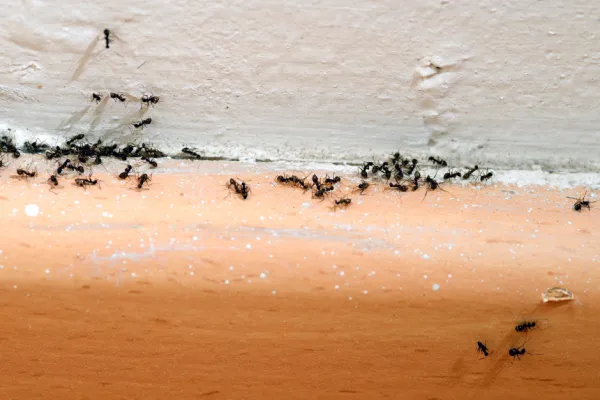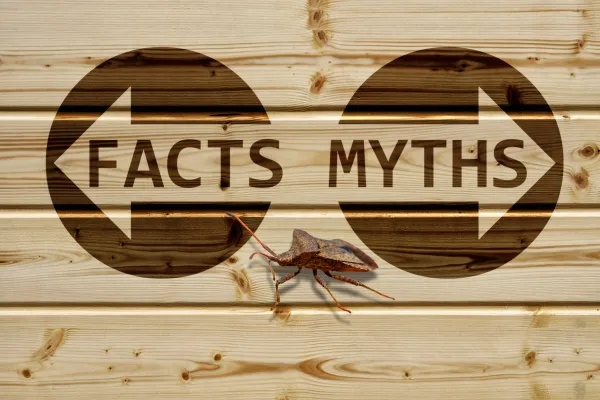Natural Repellents: Exploring Other Solutions

Summer is here! And so is the inevitable invasion of mosquitoes and other pesky bugs. We’re all familiar with how these insects can turn an enjoyable outdoor experience into an itchy nightmare. The most common go-to solution on the market tends to be chemical-based bug repellents but there’s growing interest in natural repellents that will effectively keep these bugs at bay. We’re here to dive into the options for natural repellents and why it’s worth exploring other solutions.
Growing Concerns For Chemical Repellents
Common bug repellent found in stores typically contains chemicals such as DEET (N, N-diethyl-meta-toluamide), picaridin, permethrin, and para-menthane-diol. Though these chemical-based repellents have been approved for use, some individuals are concerned about the potential health risks associated with these chemical ingredients. While short-term use is generally not something that is cause for concern, long-term or excessive application of chemical-based repellents has shown to have negative effects on people’s health, with children and pregnant women being the most vulnerable.
Natural Alternatives
Essential Oils
Essential oils have gained popularity as an effective natural repellent remedy. Some options include lemon eucalyptus oil, lavender, peppermint, cinnamon oil, and tea tree oil. These oils contain compounds and scents that mosquitoes and other insects find unappealing, effectively working as a natural repellent. Note that some essential oils should be used cautiously as they can cause minor skin irritation to some individuals. Perform proper dilution and patch testing before applying them to the skin.
Neem Oil
Neem oil, extracted from the Neem tree, has been used for centuries and is known for its bug-repellent capabilities. This oil contains properties that interfere with insects’ hormones, interrupting their feeding and growing process. It is best used when diluted with water, creating a spray for plants and outdoor areas.
Citrus Peels
Mosquitoes and other bugs have a strong dislike for citrus scents due to the high concentration of limonene, a natural compound found in citrus fruits. Instead of throwing away your citrus peels, you can repurpose them as a natural bug repellent to keep those pesky insects at bay. Rubbing your orange or lemon peel on your skin allows the natural oils from the peel to be released, creating a barrier between your skin and the bugs. Alternatively, you can strategically place citrus peels in outdoor areas where bugs tend to gather. Mosquitoes are drawn to stagnant water, so consider placing citrus peels near birdbaths, ponds, or other water sources to deter them. You can also scatter the peels around your patio, garden, or picnic areas to create a natural bug-free zone.
Herbal Remedies
If you prefer not to use essential oils, you can create a homemade herb-based bug repellent instead. Various herbs have insect-repelling qualities. Basil, lemongrass, and rosemary are known to repel bugs naturally and can be incorporated into your garden to protect against bugs. Other fresh herbs such as mint, catnip, and citronella can be boiled in a cup of water, added to a spray bottle, and dispersed in your outdoor space as needed.
Benefits of Natural Repellents
Reduced Chemical Exposure
By opting for natural bug and mosquito repellents, you can make a conscious choice to significantly reduce your exposure to potentially harmful chemicals found in traditional repellents. This is especially crucial if you have sensitivities, allergies, or general concerns about the long-term effects of using chemical-based bug repellents on your health and well-being. Natural alternatives provide a safer and gentler option, allowing you to protect yourself and your loved ones without compromising your peace of mind. Additionally, natural repellents often incorporate ingredients that are skin-friendly and can even offer additional benefits such as soothing properties or pleasant fragrances, enhancing your overall outdoor experience. Embracing these alternatives allows you to prioritize your health while still enjoying the great outdoors.
Environmentally Friendly
Natural repellents are not only biodegradable but also environmentally friendly, ensuring they don’t leave behind harmful residues that can pollute your garden or outdoor spaces. By choosing natural options, you actively contribute to a healthier environment for humans and wildlife, fostering a balanced ecosystem where beneficial insects and organisms thrive alongside your plants. Unlike chemical alternatives, natural repellents do not disrupt the environment, allowing you to enjoy the outdoors without compromising the well-being of your surroundings.
DIY Options
Natural repellents also pose the advantage of allowing you to create personalized do-it-yourself solutions tailored to your needs. With a wide range of essential oils, herbs, and natural ingredients at your disposal, you can experiment and find the perfect combination that works best for you and your outdoor spaces. Whether you prefer a calming lavender-based spray or a zesty citronella candle, the possibilities for customization are endless. This allows you to not only repel mosquitoes and bugs effectively but also enjoy the scents and aromas that align with your preferences. By tailoring your natural repellents, you can create a unique outdoor experience that suits your needs while keeping those annoying pests at bay.
While chemical-based bug repellents have dominated the market, there is growing interest and movement toward exploring other options and utilizing natural repellents. Embracing these natural options not only promotes a healthier environment for yourself and wildlife but also empowers you to take control of their bug-repellent choices. If you have questions regarding our environmentally friendly mosquito control solutions, please contact us today.


